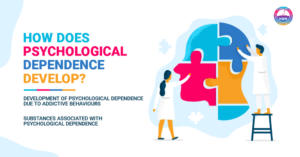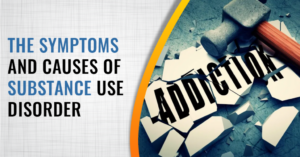Depression can make people turn to drugs and alcohol. This can lead to serious health problems. When someone is addicted, they often use these substances to try to feel better, but it doesn’t really help with their depression. The kind of depression that comes from using drugs and alcohol is different from regular depression.
In Siliguri, there’s a wellness center that helps people with both depression and substance abuse. To deal with this, experts there suggest that it’s important for the person’s loved ones to talk to them and provide support. This can make a big difference in helping the person with addiction and depression feel better.
How to Treat Depression and Substance Abuse

If someone is dealing with depression, they often feel alone and without strength. To help them, talking to them is really important. It can help them overcome both depression and addiction. Here are some important tips for talking to someone who is going through depression and substance abuse:
Being Honest about the Problem
Trying to make the person feel better by cheering them up won’t work. False reassurances and encouragement won’t help either. It’s tough for someone dealing with these issues to change their mood easily. That’s why it’s important to be honest when giving advice. When talking to them, try to understand their outlook on life.
Being Nonjudgmental
Never judge someone with depression and addiction as if they chose this path. These conditions are illnesses, not lifestyle choices. Be cautious before criticizing their use of drugs or alcohol because criticism can make their depression worse.
Being Empathetic
Empathy means trying to see the world through the other person’s eyes. It can reduce the pain of these disorders, even though it’s hard to understand what it’s like to be depressed truly. Empathy can help ease a lot of their frustration.
Being Prepared to Offer Solutions
You never know when the person with depression will ask for help or solutions. So, being ready with possible solutions during your conversation is a good idea. If the conversation goes well and they seem open to it, you can suggest solutions to their problems.
Being Patient
Dealing with depression and addiction is a long and challenging journey. It might take time for the person to open up or accept help. Patience is key. Avoid rushing them or expecting quick results.
Active Listening
Listening attentively without interrupting is crucial. Let them express their thoughts and feelings fully. This can help them feel valued and understood.
Offer Support, Not Ultimatums
Avoid giving them ultimatums or making them feel pressured to change. Instead, offer your support and let them know you’re there for them, no matter what.
Encourage Professional Help
While you can provide emotional support, it’s essential to encourage them to seek professional help, such as therapy or counseling. These professionals are trained to address their specific needs.
Respect Their Boundaries
Respect their need for space and boundaries. Sometimes they might not want to talk or be around others, and that’s okay. Give them the space they need while still offering your support.
Educate Yourself
Learn about depression and addiction to better understand what they’re going through. This knowledge can help you provide more effective support and empathy.
These are the tips that are especially recommended by the wellness center in Siliguri. Valuable partners can intervene in the situation of depression and substance abuse by having an understandable conversation.


